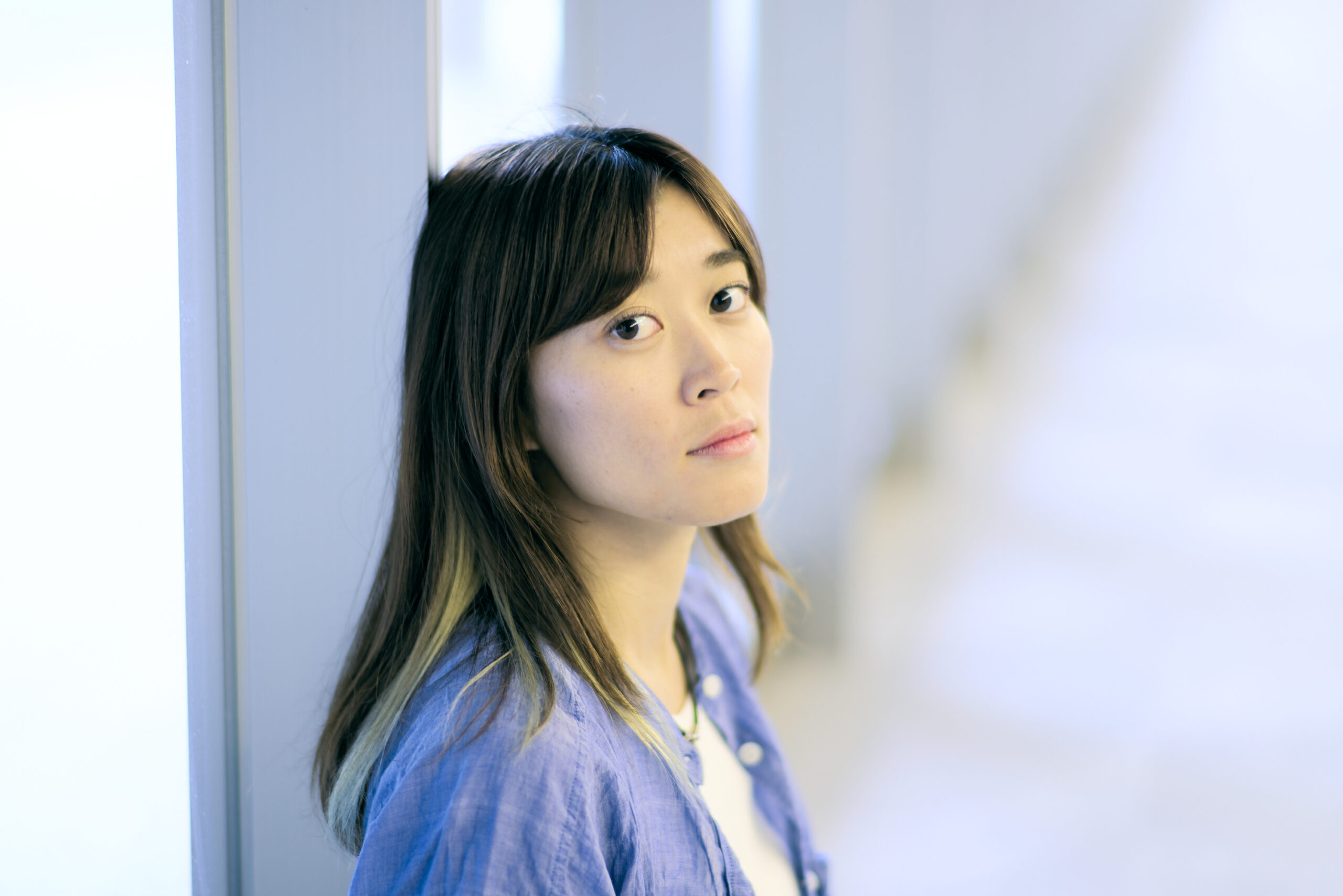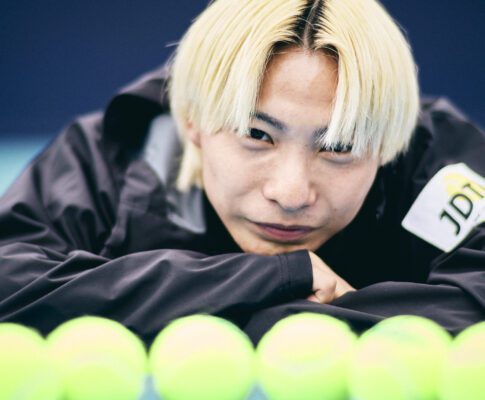目次
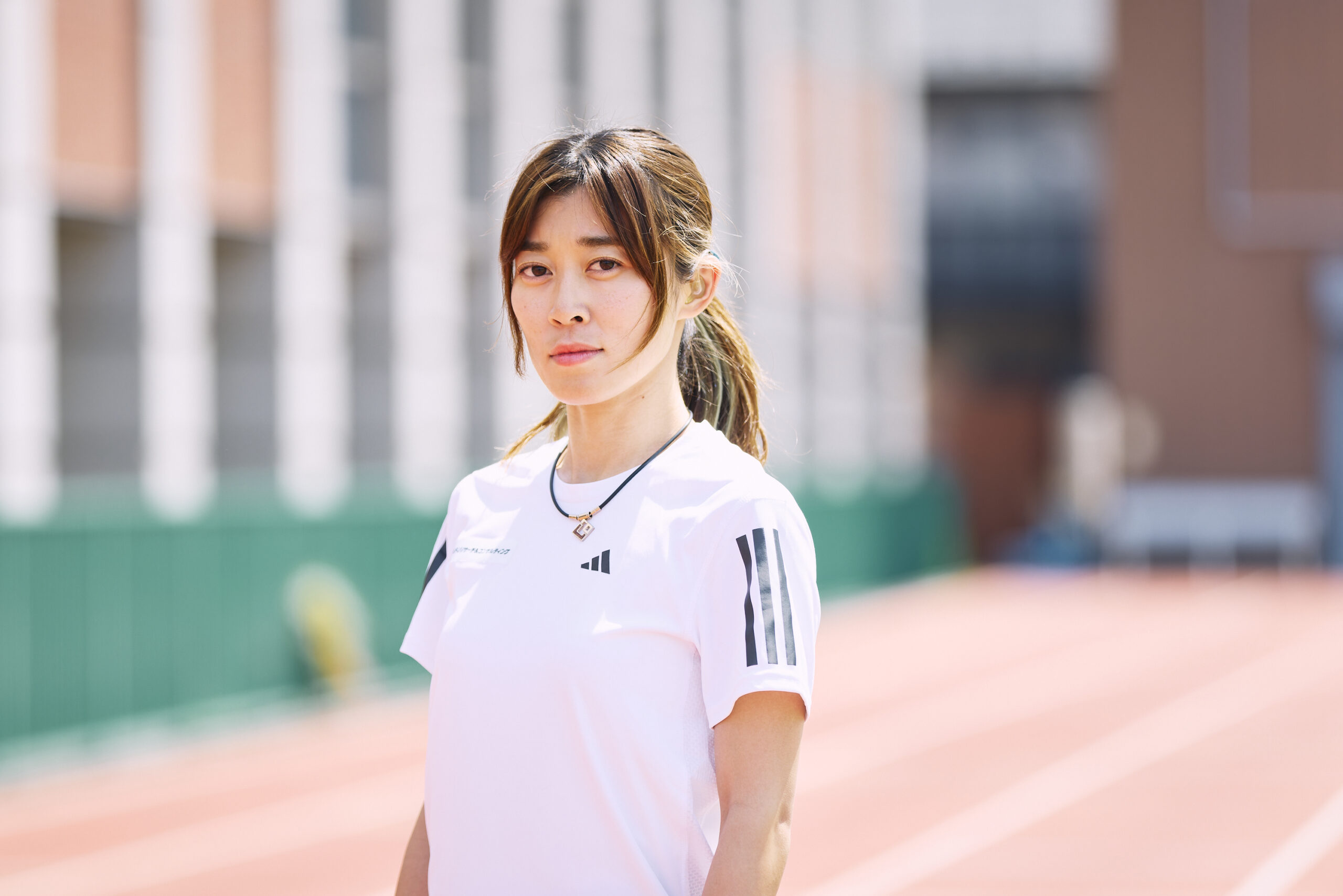
Mio Okada
Born in Tokyo in 1997. Deaf Athletics Women’s 800m, 1500m, 1mile Japanese record holder.
Graduated from Tokyo Metropolitan Chuo School for the Deaf and Japan Women’s College of Physical Education. Belongs to Mitsubishi UFJ Research and Consulting Co., Ltd.
Deaf from birth, she attended a school for the deaf until high school. She has loved running since she was a child and started running seriously in high school, joining the athletics club. In her first Deaflympics, she placed 6th in the 800m and 7th in the 1500m at the Samsung 2017. In her second appearance at the last edition of the Caxias do Sul 2022 Deaflympics, she won a long-sought medal by finishing third in the 1500m. She is one of the leaders in women’s Deaf Athletics and is expected to perform well at the Tokyo 2025 Deaflympics.
Running and presence of her “Family”
――How did you get started in athletics?
I have loved to move my body since I was a child and played many different sports. Among them, I just loved running. My father used to take me to the deaf athletics team’s practices and I watched the athletes run up close, so I naturally became interested in athletics.
――When did you start athletics in earnest?
From high school. There was no track team in my junior high school, and I played volleyball. I still loved running, so I was very happy when I was able to start running seriously in high school.
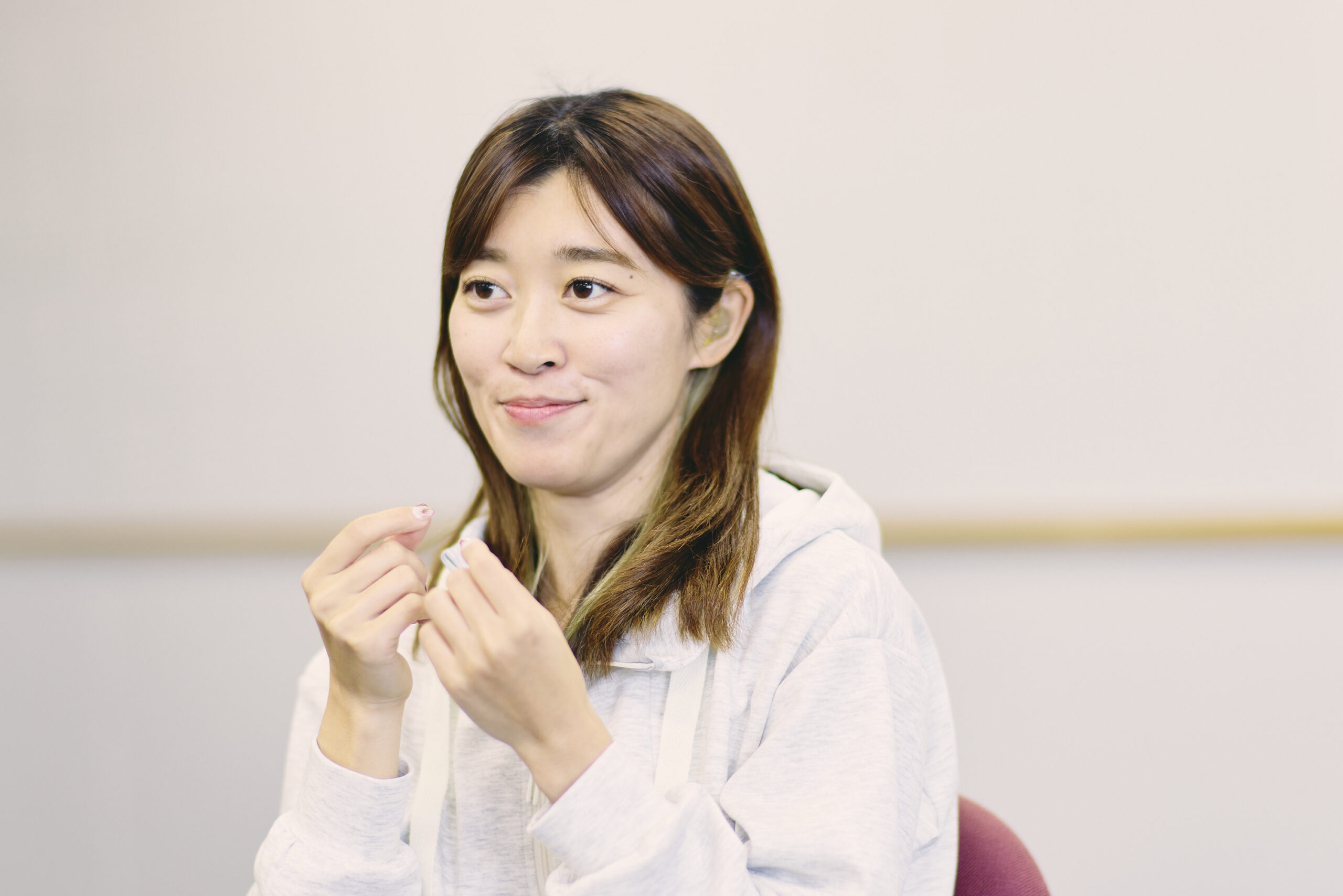
――Your events are 800m and 1500m. How did you decide?
I don’t have much of the instantaneous power needed for short distances, and not much of the endurance needed for long distances…. So I chose the middle distance in between as I thought it would suit me. The short distance is over in 10 seconds or so, but the 800m is two laps around the track, so the cheering crowd can watch for a longer time!
――I hear that the middle distance is especially hard.
…It’s hard, really hard!! For 1500m, I can run in rhythm, but 800m is really tough physically because it is a speed race. Even in practice, everyone runs out of oxygen and sometimes runs while feeling dizzy. I feel like I’m running for my life, and sometimes it’s so hard that I wonder why I’m doing it.
――What motivates you to continue running?
I guess it’s my family. My family supports me, and I can do my best. I used to take their support for granted, but now I realize how much I really appreciate it. My family, but also the people who support me are very important. The desire to respond to that support is what motivates me to do my best.
Chase me more!
――You currently belong to Mitsubishi UFJ Research and Consulting Co., Ltd. What is your work and practice schedule like?
Basically, I work in the morning and practice in the afternoon. When I have training camps or matches, I am able to give priority to competition. I am truly grateful to the company.
――How do you practice on a daily basis?
Basically, I do it at my alma mater, Japan Women’s College of Physical Education. After graduation, I had been practicing alone away from the college. But, without a coach, I often didn’t realize what was wrong with me without any feedback. Recently, I went back to my alma mater and asked a coach from my college to provide feedback on my training. Practice is six days a week. I adjust the amount and intensity of practice so that I do not get tired. Some days I practice for a full day, two hours each in the morning and afternoon, while other days I just jog and stretch.
――What do you keep in mind during the race?
Athletes who can hear are able to formulate race strategies by gleaning information from the “sounds” of other athletes’ footsteps and breathing. In contrast, deaf athletes need to catch information with their eyes. For the athletes in front of me, deaf athletes will look at the swing of their arms to determine if they are slowing down. However there is no way to check the athletes behind me unless I see them with my eyes. At that time, I look at the “shadows” of the chasing athletes. I get an idea of the position and pace of the following group. When there is a screen on the track I look at it to check the whole situation. However, of course it is important to understand the race situation, but basically I try to run in my own rhythm and focus on that.
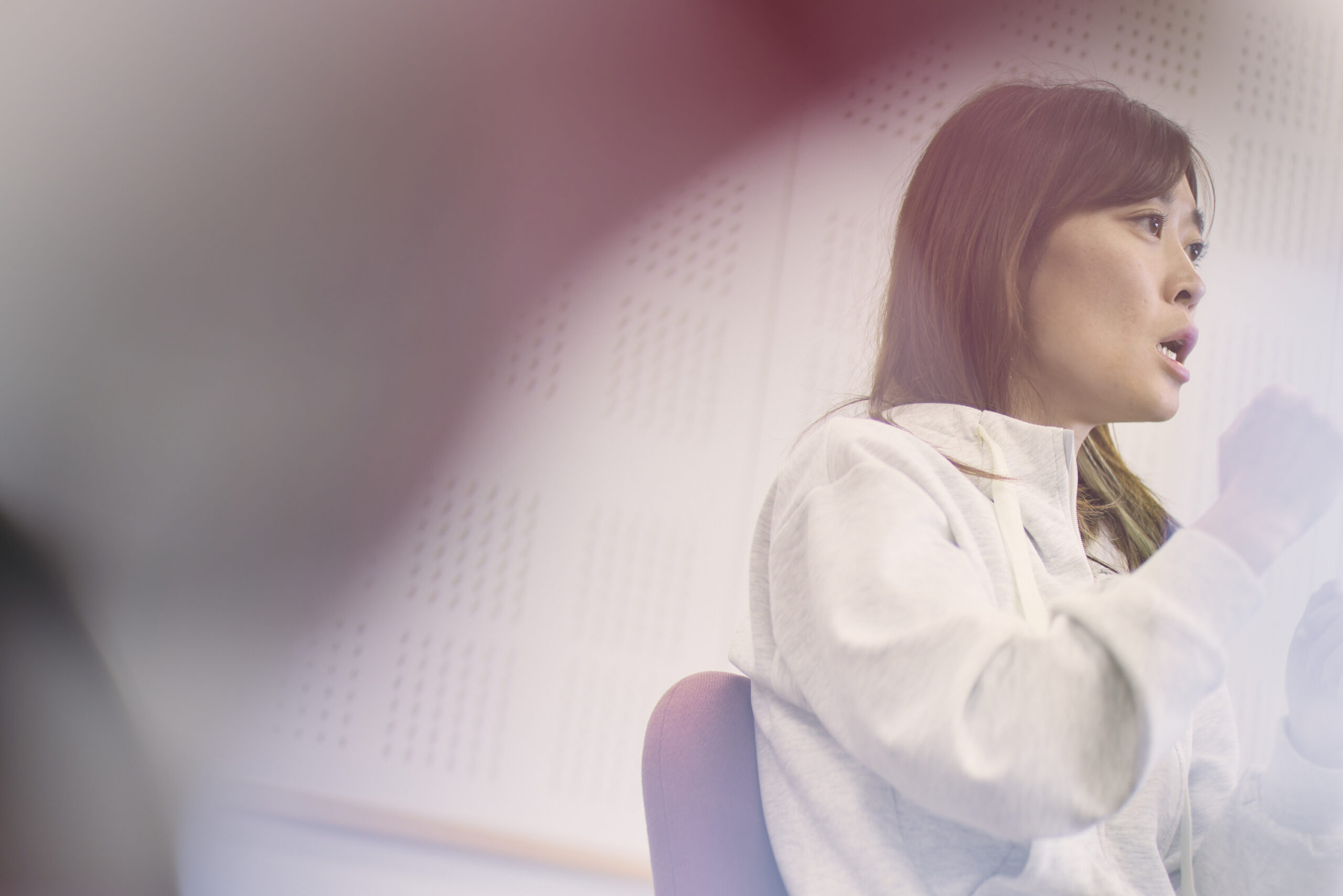
――You are currently the Japanese deaf record holder for the 800m and 1500m. How do you feel about the position of being chased?
I feel happier than pressure for having the record. It is exciting to be chased. That’s because I get more excited to have someone to compete with. I feel that I can improve my own record even more by improving each other. So “chase me more!”
――Is there any particular race expansion that you specialize in?
Let me see… In my case, I am better at chasing from behind. That’s because I can run with some leeway and look ahead. However, in the 1500m at the Caxias do Sul 2022 Deaflympics, where I won the bronze medal, since I was in front, I was running thinking that it was a little different from what I had expected. I was happy that I was still able to achieve a result, but I felt that there are still elements that can be improved in this race.
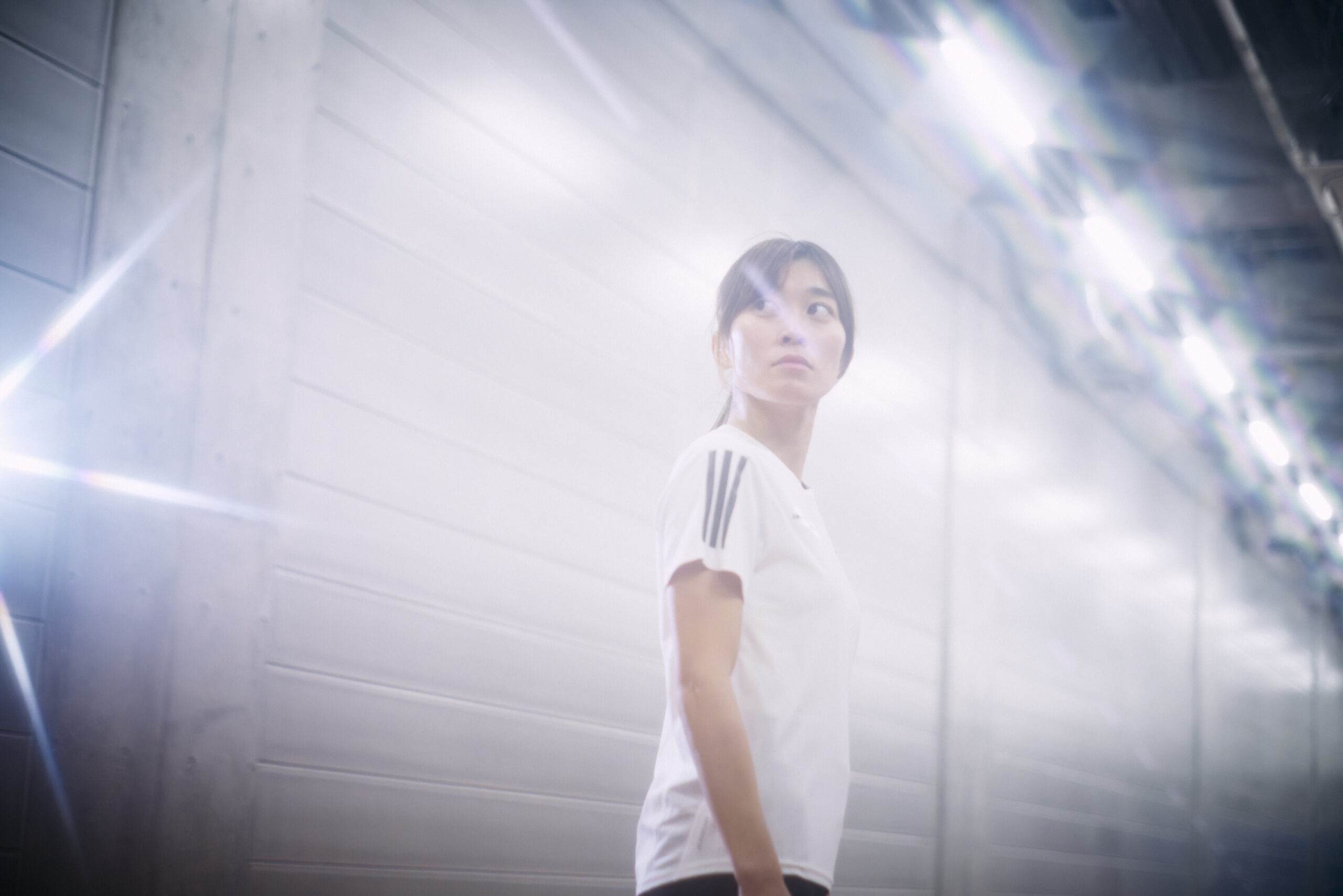
Confidence to compete globally, and commitment
――Your first international competition was the World Deaf Athletics Championships 2016 held in Bulgaria. What were your impressions?
Everything was a surprise…First of all, the athletes’ physiques were different, and they were just so big. They were tall, long-legged, and had a tremendous running difference. I remember being shocked to be shown such reality and the difference from the rest of the world, as well as the fact that I could not achieve any results.
――The year after that competition, there was the Samsung 2017 Games, which was your first Deaflympics appearance. What was on your mind at that time?
I had been able to practice well and achieve personal bests before the competition, so I had a good feeling that “I might be able to make it”. But… I was not able to show my ability in the race, and the result was the same as the previous year’s World Deaf Athletics Championships. This was the first Deaflympics I participated in, but I could feel the excitement of the competition and the athletes were very lively. I felt ashamed of myself for not being able to show my strength in that situation…There were many Japanese athletes who were doing well, but I didn’t win any medals, and I felt like, “What am I doing?” So I made a promise with Maki Yamada, who had competed in the same deaf athletics competition with me up to that point, that we would definitely win a medal at the next Deaflympics. It wasn’t easy to get the results I wanted, but two years after Samsung, I was able to get a bronze medal in the 1500m at the World Deaf Indoor Athletics Championships in 2019. That is when I finally gained the confidence to compete on the world stage.
――At the Caxias do Sul 2022 Deaflympics, where you promised to win a medal, you took an impressive bronze medal in the 1500m. How did you feel then?
When I reached the goal, I was half happy and half disappointed…The time difference from first place was about 2 seconds, so I was disappointed because I felt that my weakness came out when I was just one step away. In that sense, I was happy, but I had a few mixed feelings. Unfortunately, Maki did not win a medal at that time, so I made a promise with him again that we would win a medal together at the next Deaflympics in Tokyo.
――You had to return to Japan just as the 800m race was about to start on the next day.
Since an increasing number of Japanese athletes had been infected with the coronavirus, the day before the 1500m competition, the headquarters explained to us that we might not be able to participate in the competition depending on the situation. I was in a situation where I might only be able to run the 1500m, so I just focused on the race, and as a result, I was able to win a medal.
However…after all, the 800m was my main event, and it was a very important race in which I had worked hard for the gold medal. Considering the process I had to go through to achieve this, the frustration I felt at the time was quite great, and I was very disappointed.
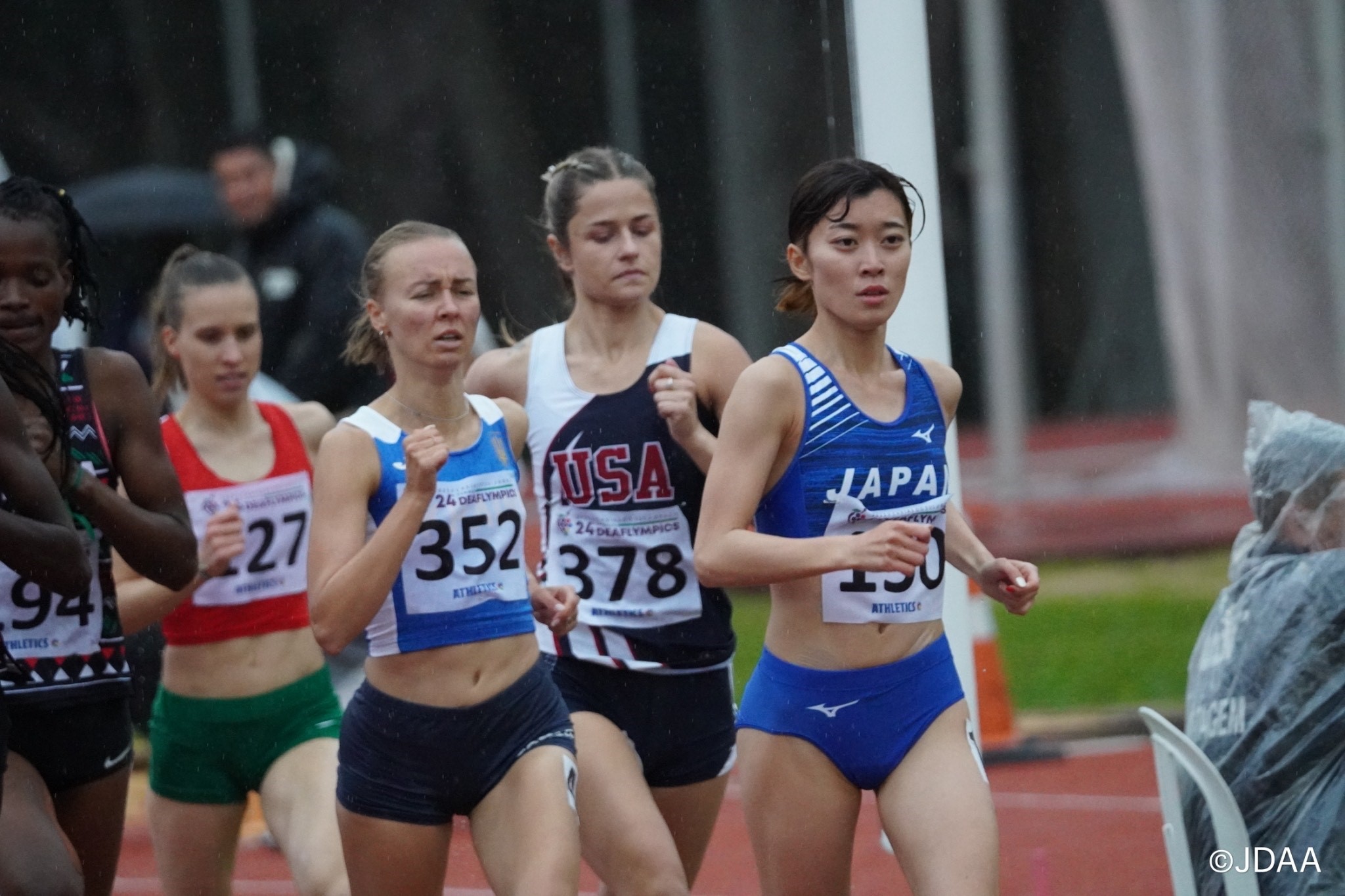
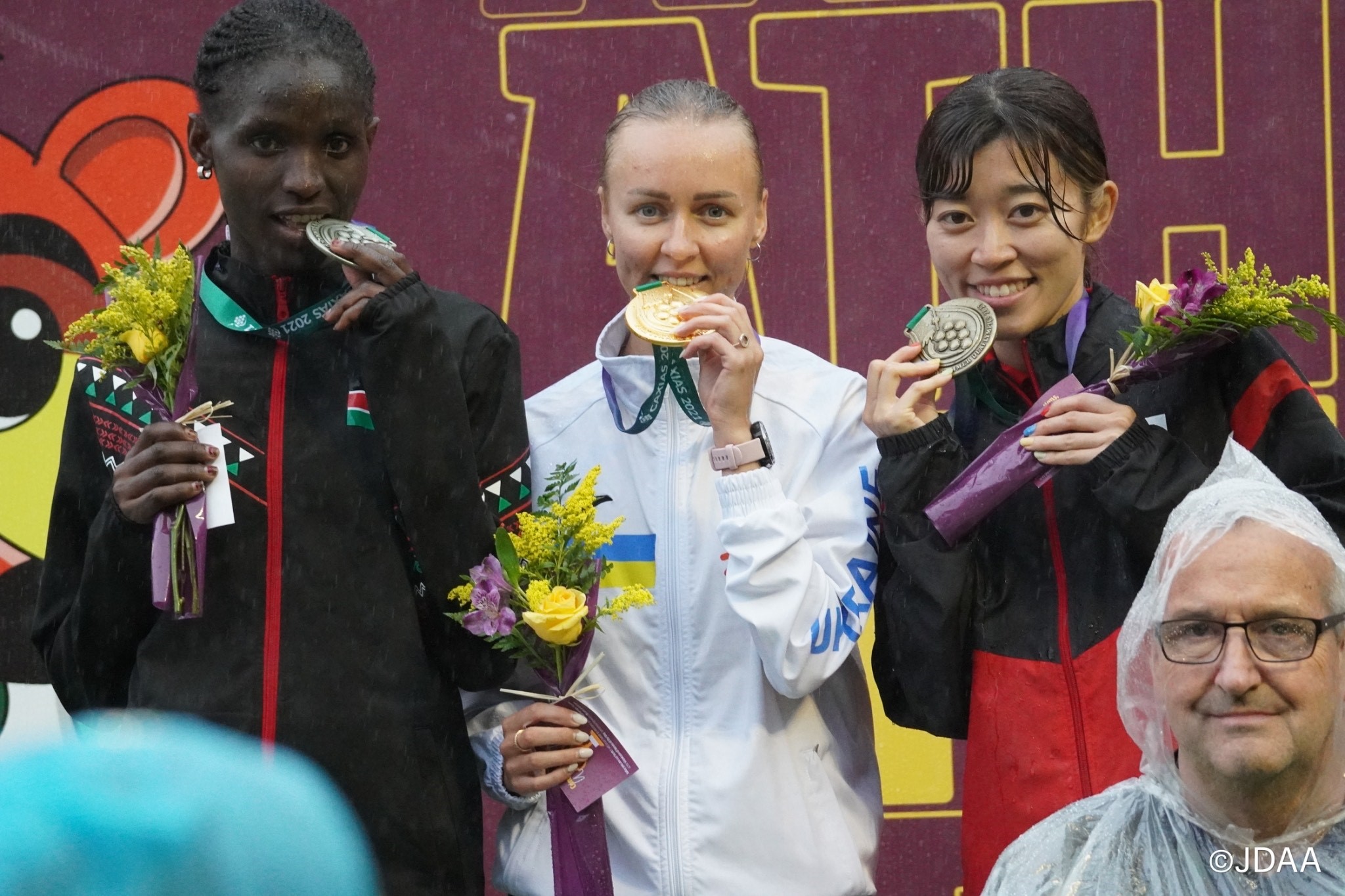
*Courtesy of Japan Deaf Athletics Association
A stage where I can shine as myself.
――The Deaflympics will be held in Tokyo in 2025. What does the Deaflympics mean to you?
It is a place where I can be myself. Since the Deaflympics is a sports festival for the Deaf, the Deaflympics provides a good environment for competition, such as starting lights and sign language interpreters. It is a stage where I can fully demonstrate my abilities and a place where I can expand my world.
――What do you mean by expanding your world?
The Deaflympics will give me the opportunity to interact with athletes from other countries. I talked with foreign athletes using “International Sign Language,” one of the sign languages used in international exchange, and realized that what is normal for me is not normal for them. It is also fun to learn the sign language of each country through this kind of exchange. It has really expanded my world, and I wonder what kind of encounters I will have at Tokyo Games. I wonder what new worlds I will see. As an athlete and as a human being, it is the “Deaflympics” for me that I am excited and look forward to with such thoughts.
――How do you feel about the Deaflympics being held in Tokyo?
It is a very, very important tournament. It is because it will be held in Tokyo, where I was born and raised. It’s not easy to get a chance to watch the Deaflympics. Up to now, Turkey and Brazil were are too far away for people to go to support them, but it is easy to watch them in Tokyo. I hope that many people, including my family, friends, and all those who have been involved and taken care of me, will watch it. I wonder what I will look like from the track during the race…I hope to see the packed spectators enjoying the Deaflympics together.
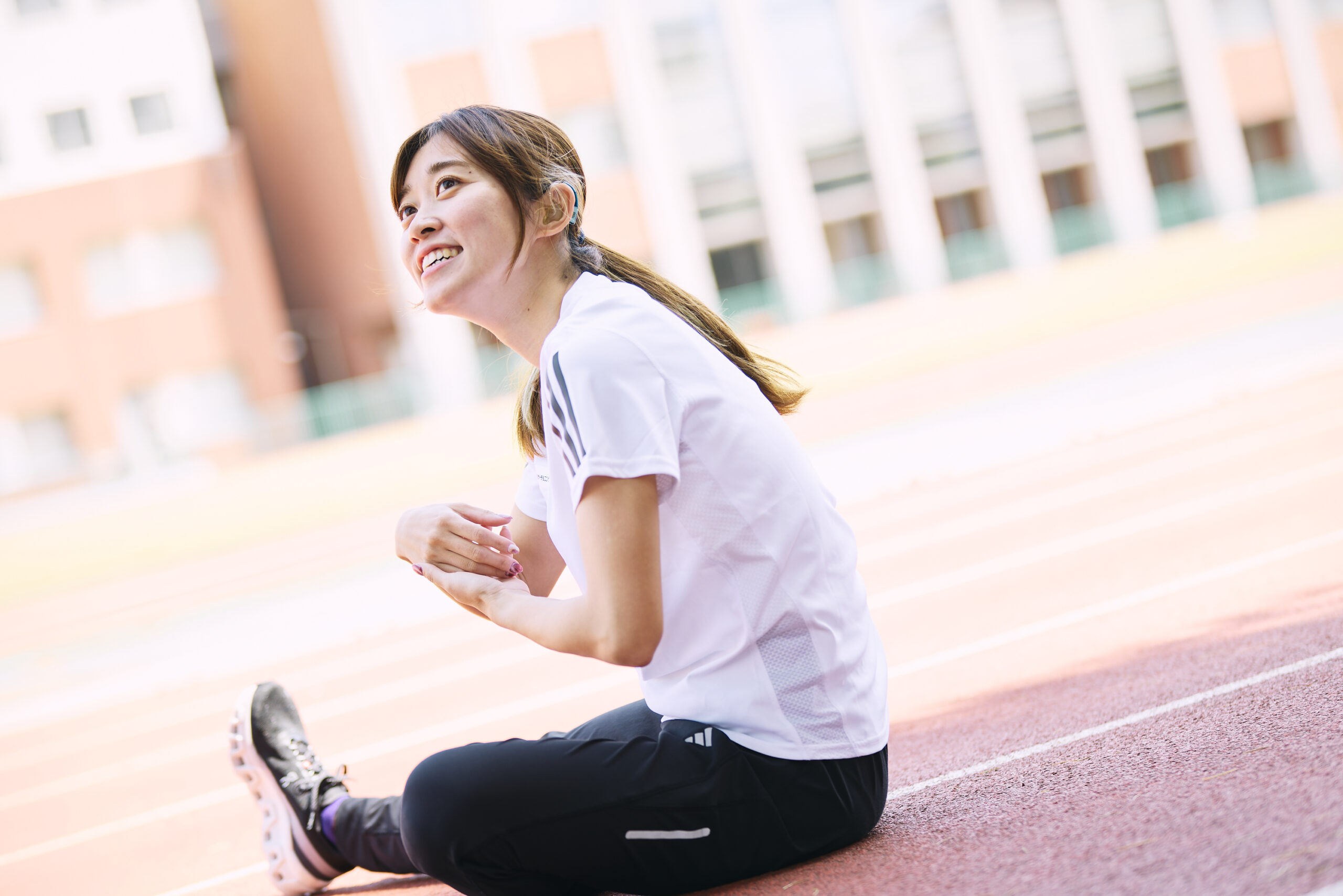
――What do you expect from the Deaflympics being held in Tokyo?
I expect that deaf sport will expand and that understanding of the deaf will spread. There are still many people who think that it is the Paralympics that deaf people participate in, but I want more people to know that the Deaflympics are separate from the Paralympics. The unique way of starting a race at the Deaflympics including using starting lights, waving a flag. I hope that interest in deaf sports will expand, including a system that is appropriate to the characteristics of the competition and that sign language interpreters will be provided. I also want people to know that deaf people have different ways of communicating, some use sign language, some don’t, and some use written communication, their own voice, voice conversion apps, etc. It would be great if the Deaflympics could be an opportunity for everyone to “expand a new world”.
――What are your goals for the Tokyo 2025 Deaflympics?
I would like to show you a good performance at the Deaflympics. I want to get a medal of good color, and I also want to break my personal best and set a new Japanese record. The Japanese record was set in my fourth year of college, so I have not been able to break it for more than four years. First of all, I would like to set a best time and win a medal at the World Deaf Athletics Championships in Taiwan in July to gain momentum for the 2025 season. For that, there is only practice!
――Do you have any rivals?
I wonder who that is…Maybe nobody. I want to win myself.
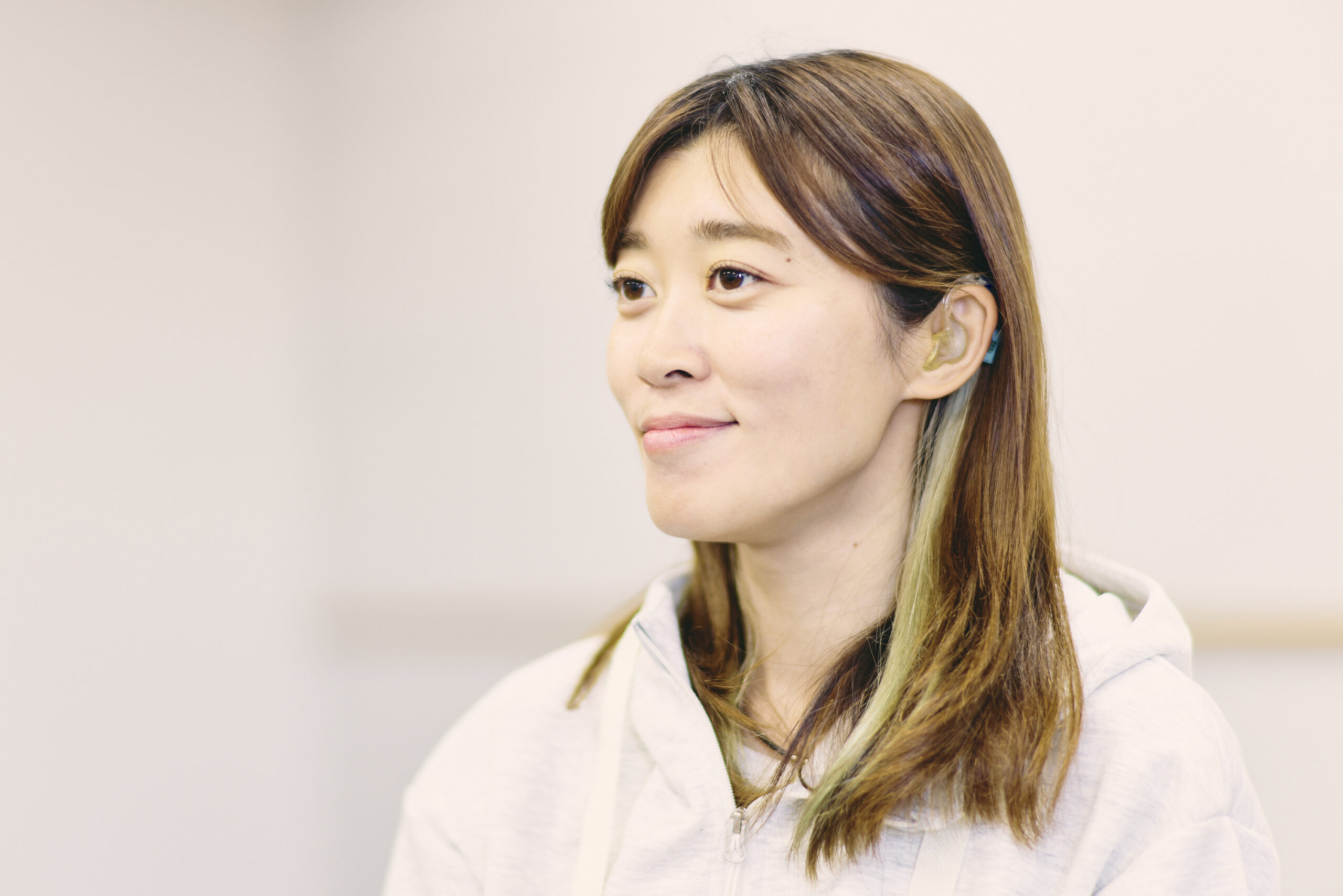
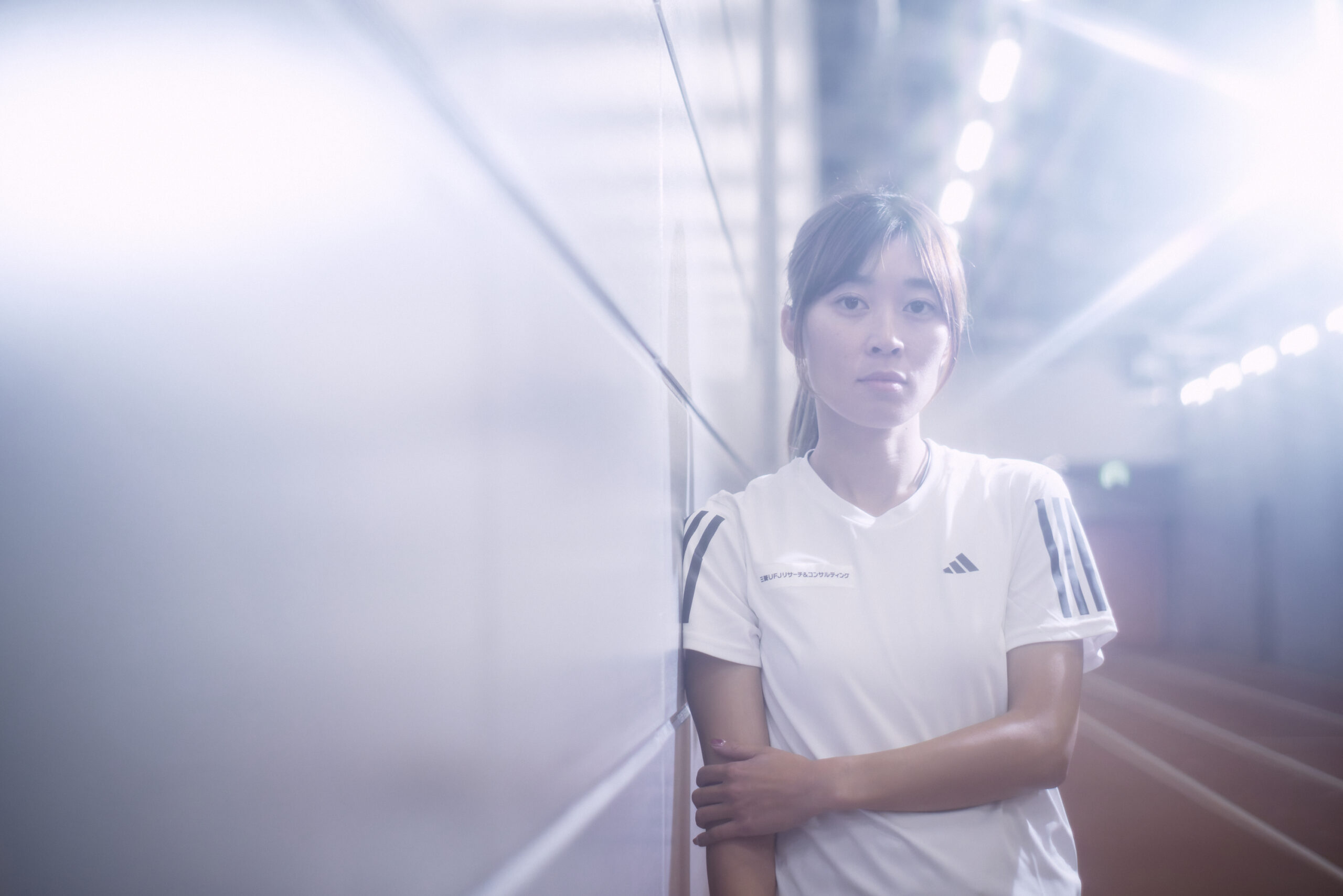
Strict with oneself, caring and funny?
――Please tell us about your personal side from here. What kind of person do people around you think of you?
I asked my friends, “What kind of person am I?”, and they replied, “a person who is strict with oneself, who looks after those around me well, who is funny… I’m not aware of it. I consider myself rather a rough person. Of course, it is different in competitions, but I usually feel that it is better if I can just do 80% than doing perfectly.
――How do you spend your days when you don’t have practice?
I do almost nothing! I have been going to hot springs a lot lately, and my favorite place nearby is Seoto no Yu in Akikawa Gorge. It’s a great way to relax and unwind in nature. I used to go shopping and play, but I am looking for relaxation lately. I also like to drive.
――I heard that you have dogs.
I started getting a dog because I originally loved animals and wanted dogs. They are whippet and run very fast. They are faster than me and runs 50m-60m in 4 seconds. Now they are both old, about 80 years old in human terms, and are spending their time at home. Their names are Love and Terra. Terra means earth in Latin. Love was named after the heart pattern around her waist. They are very cute!
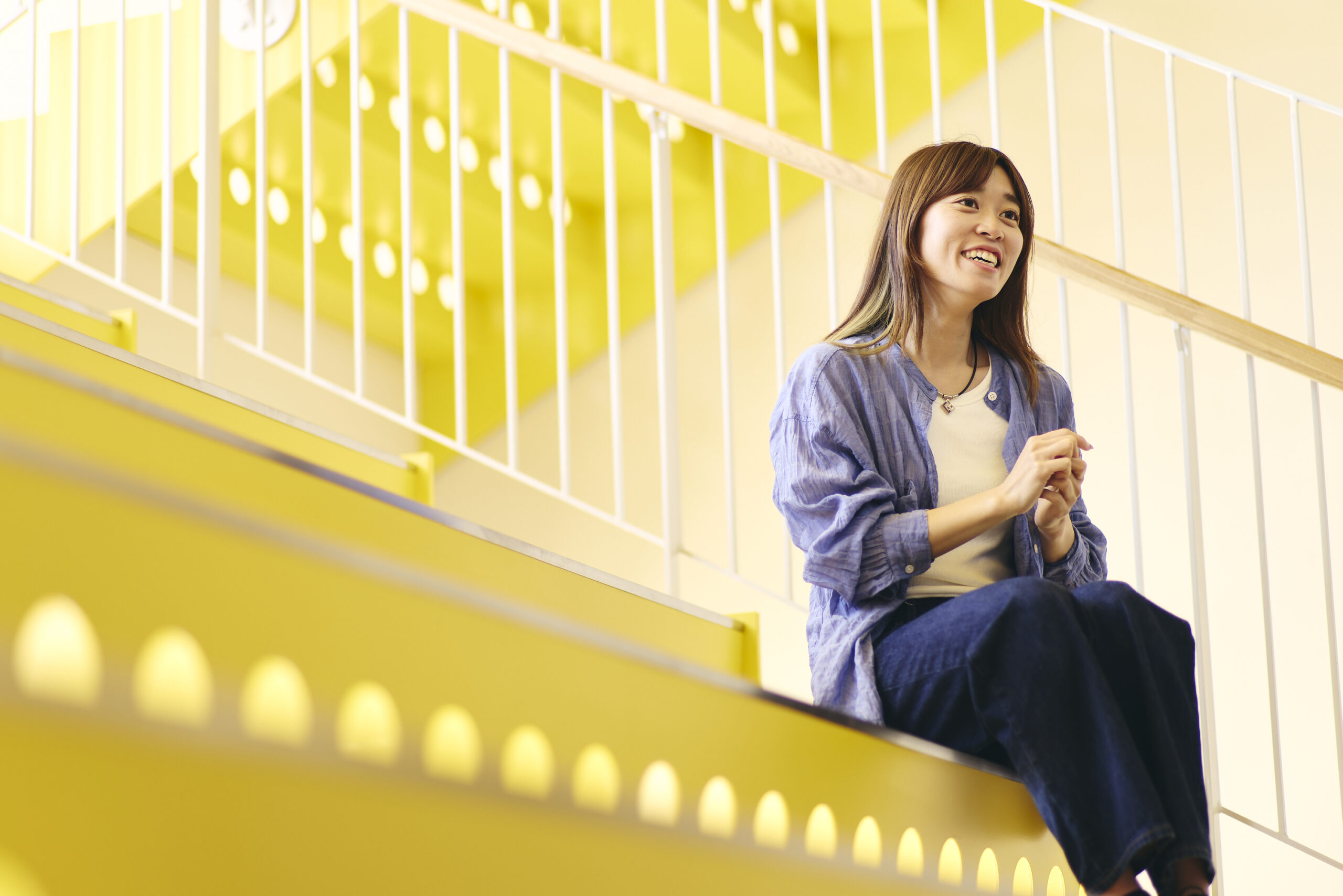
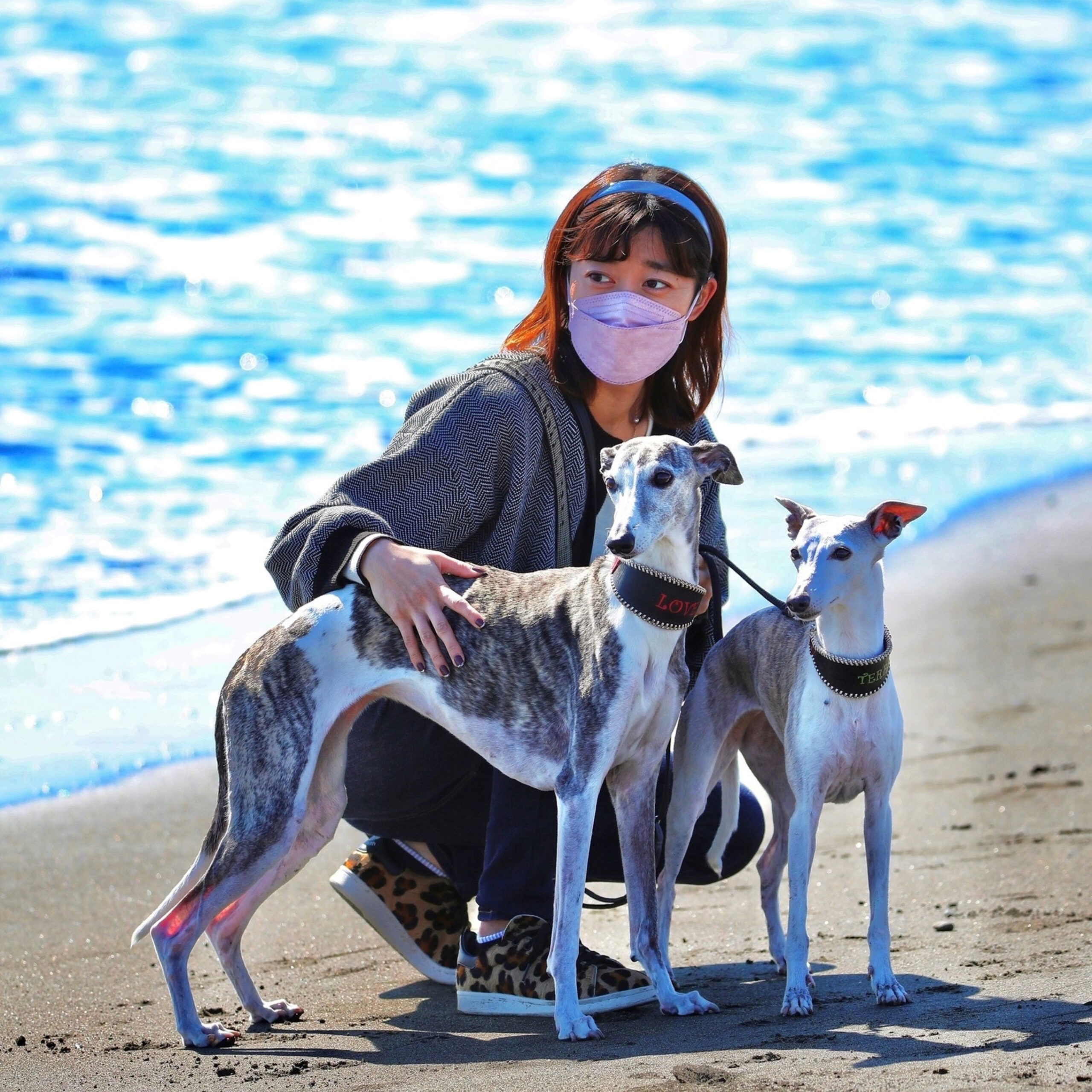
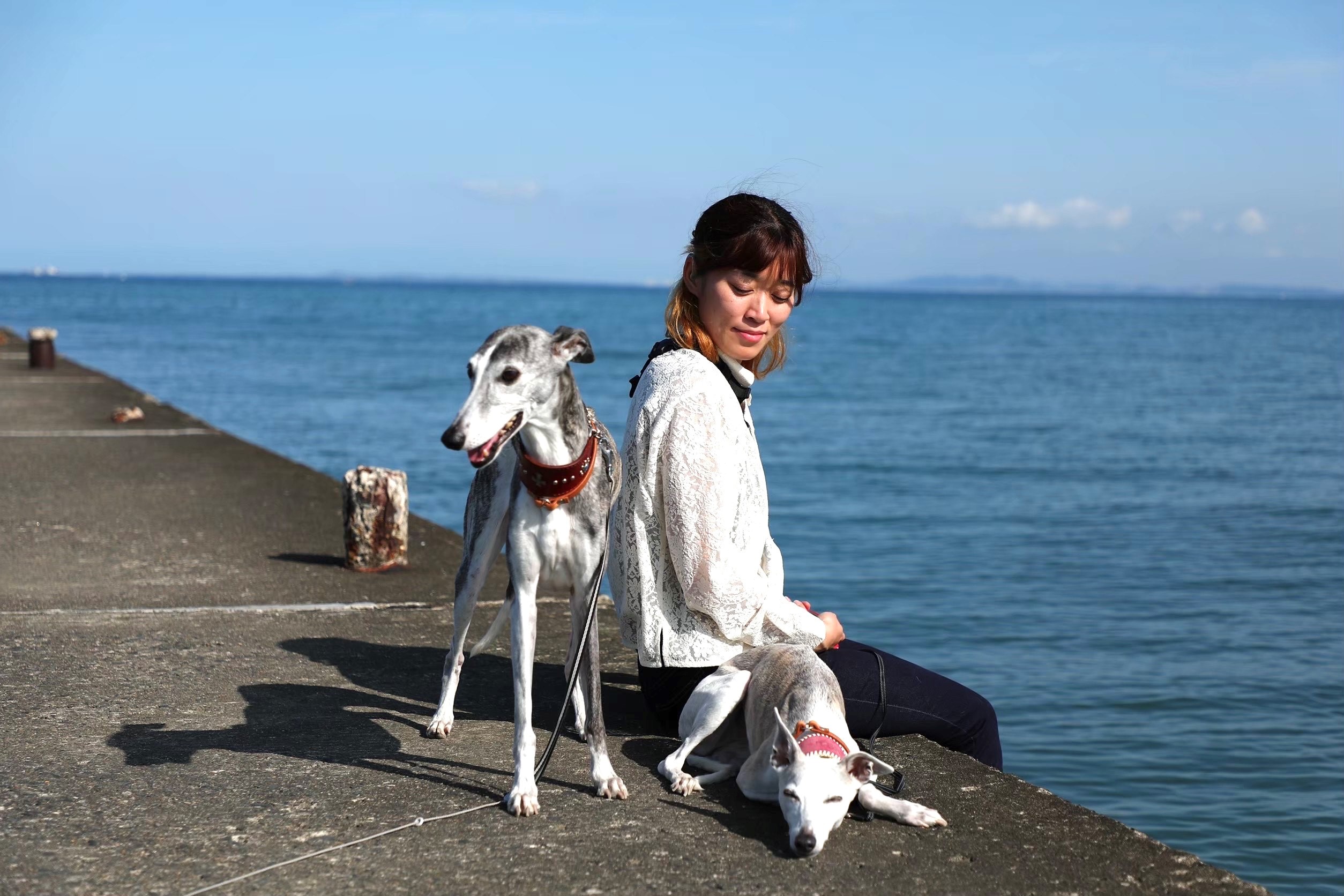
*Courtesy of Mio Okada
――Who is your favorite actor?
Men are hard to say… there are so many of them. Recently, Kotaro Yoshida! He is interesting to watch because he has a lot of facial expressions. That is his charm points.
Among women, Fumi Nikaido and Tao Tsuchiya. I like them both for their cuteness and acting ability. Tao is a senior at my college. I have not met her yet, so I would be happy if I could meet her someday.
――Do you have a favorite athlete?
I have admired Allyson Felix since I was a little girl. She has won 11 medals, the most in women’s Olympic history, and competed in the Olympics even after giving birth. She retired in 2022, but I respect her as an athlete and a woman!
I have been a fan of baseball player Dai-Kang Yang since his days at Nippon Ham Fighters. I like him because he plays so cool. And he is handsome! On the wild side, I’m also a fan of rugby player Michael Leitch.
――Who would you recommend as a player?
There are three of them! One is Nanami Miyasaka, a fellow deaf athlete and the same age. We became friends when we were together on an educational internship during our senior year of college. She is deaf, but she is an amazing athlete who is aiming for the Olympics in clay shooting and has achieved results in the hearing world as well! I would like everyone to know about her and pay attention to her.
The second is Mariko Morimoto, my college senior. In fact, I respect her so much that I want to call her “Mariko-sama!”. She is an amazing person who holds the Japanese record in the triple jump. When I see her activities, I am very encouraged and she makes me want to work even harder. She has a very strong mental attitude. The triple jump consists of six leaps from the preliminaries to the finals. Even if the result is surpassed by another athlete in the middle, she would firmly surpass it. I really respect her mental strength.
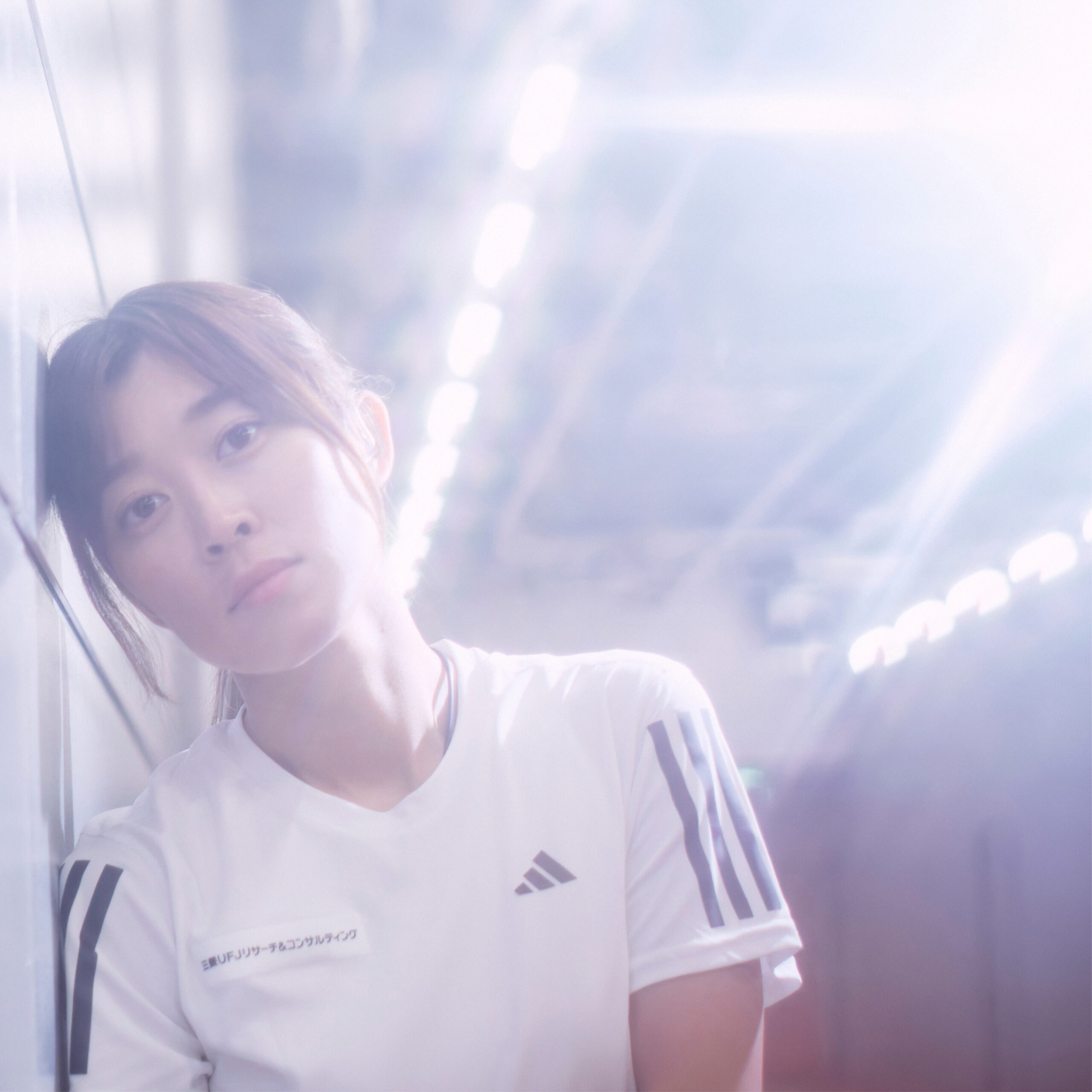
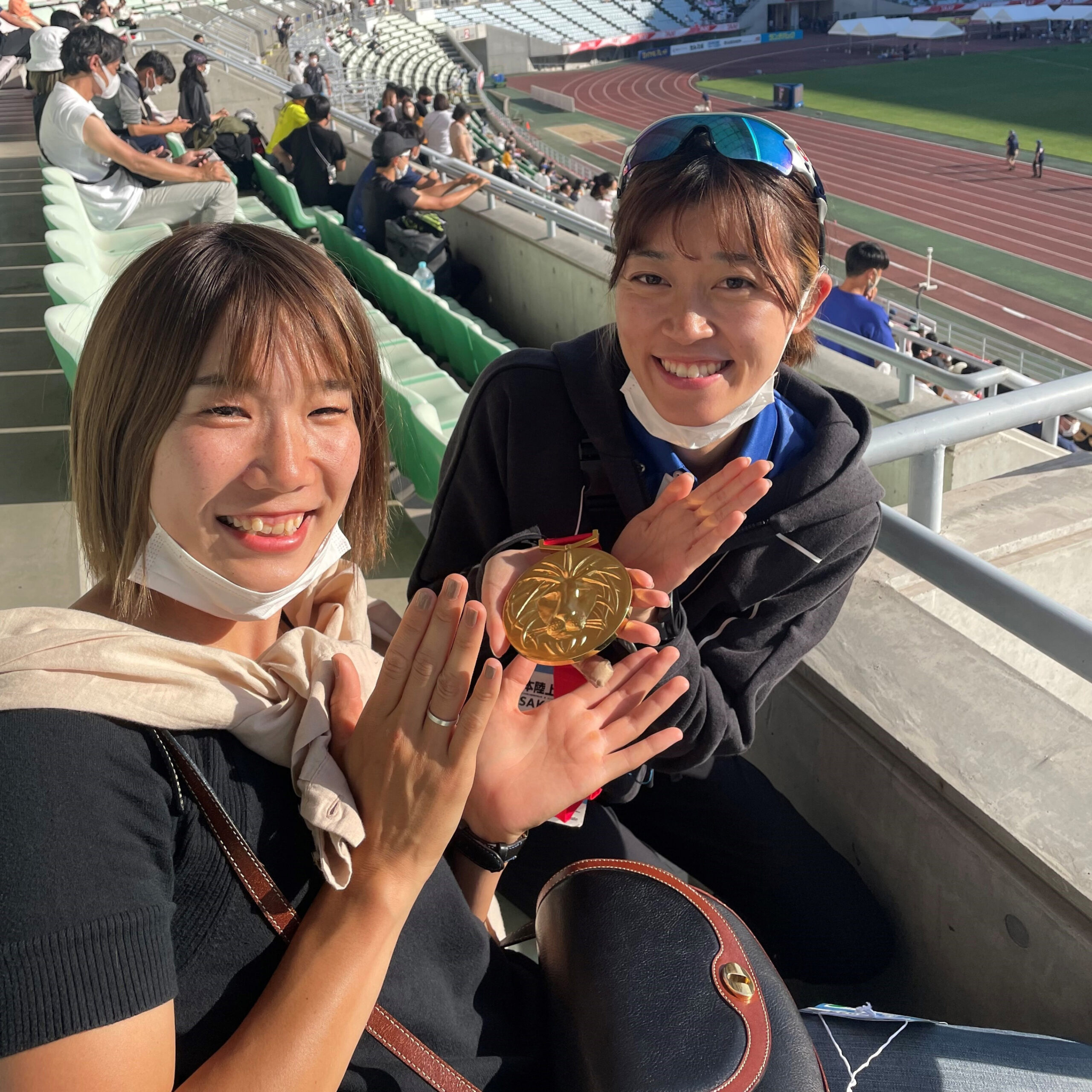
*Courtesy of Mio Okada
――And the last one?
It is Kazuya Shiojiri, 3000m steeplechase. He has been my favorite since his college days. He is cool when he is running, but he is cute when he becomes calm after the run! I like that gap! Since he is out of my league, I had hoped to be able to watch from afar, but I happened to meet him at a training camp a year ago. That was the first time we were able to have a good conversation. I thought of his signature name and asked him so many questions there, and he may have felt a little put off.
A really delighted thing happened there …It was just my birthday that day. I asked him to say “Happy Birthday” in sign language, and to my surprise, he did it willingly!! It was the best birthday ever. I probably won’t have another birthday better than that one
――That was a lovely birthday! Do you have a favorite or cherished word?
My father has always told me since I was a child, “Believing is power”. Believing in myself turns into strength. I remember these words before a game or when I have a bad day. I may not be able to do it, but I believe that “I can do it”. The placebo effect is really there, and there is a sense in which believing turns into power.
It’s not a word, but I like my name too. My name includes the character for “sea,” and sometimes I wish I could live near the sea in the future.
――Finally, do you have a message for our readers who are looking forward to the Tokyo 2025 Deaflympics?
The Deaflympics is a quadrennial event, and it will be held in Japan for the first time in Tokyo in its 100-year history. There are not so many opportunities like this in our lifetime, so I hope you will come to the venues and experience the fascination of deaf sport in a live setting!
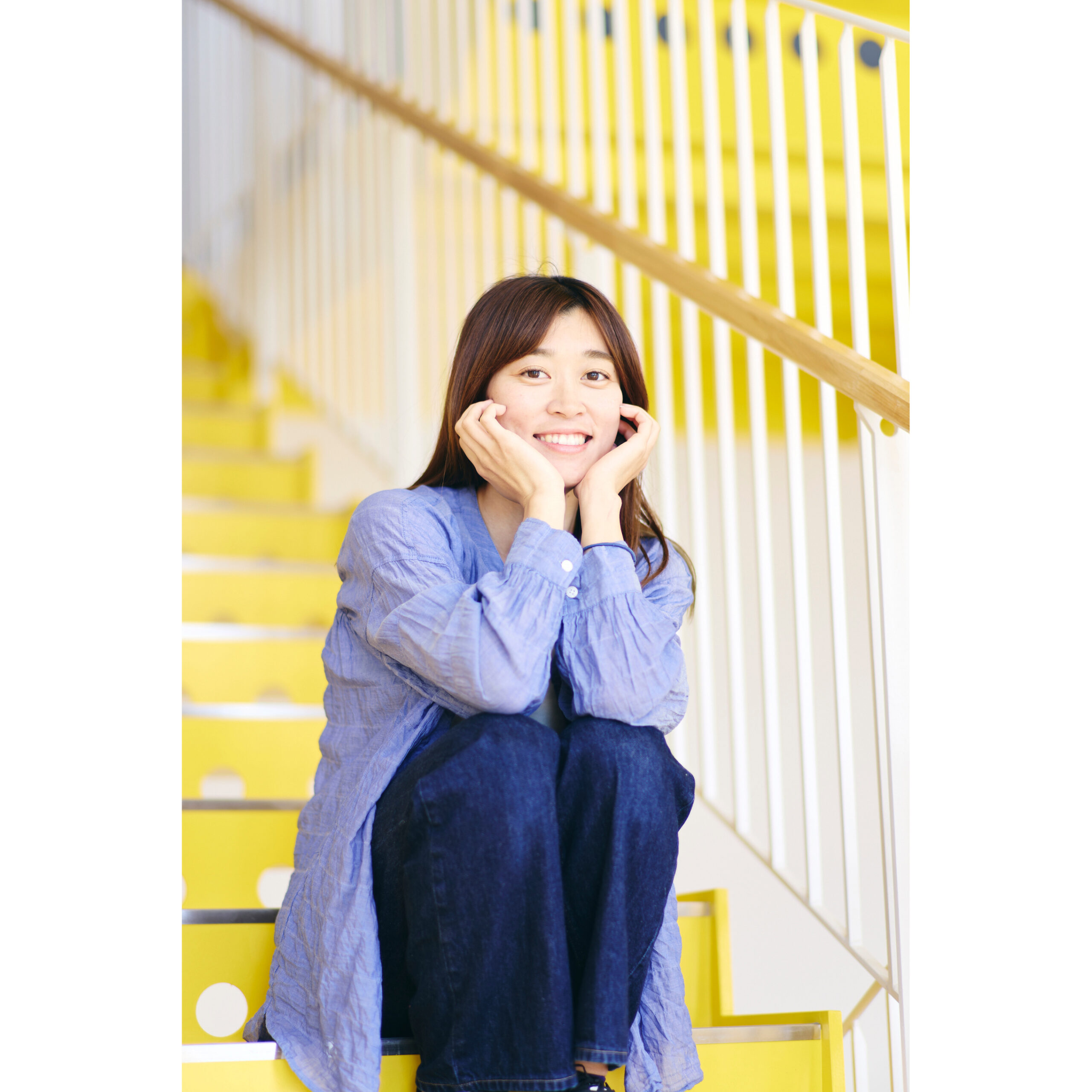
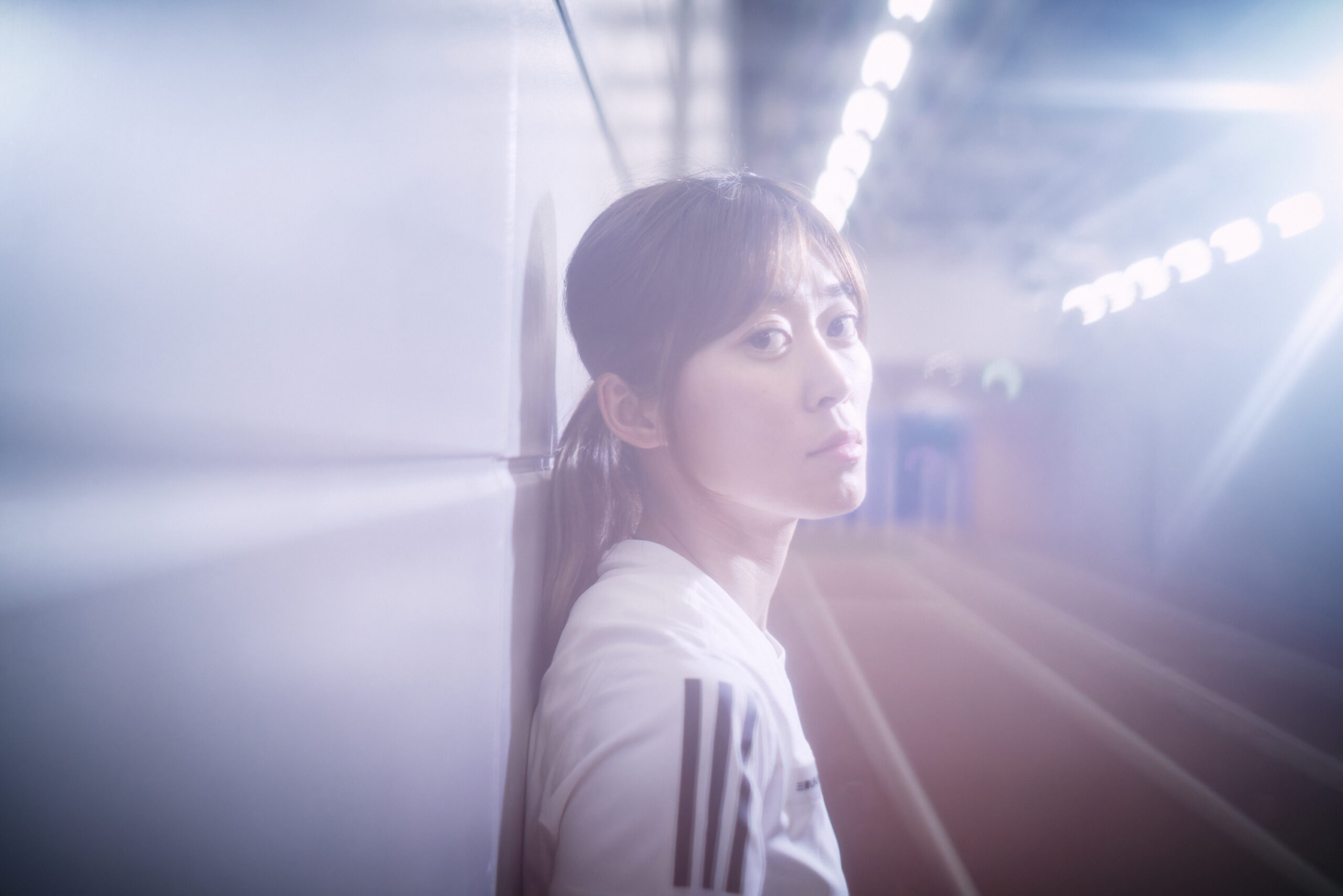
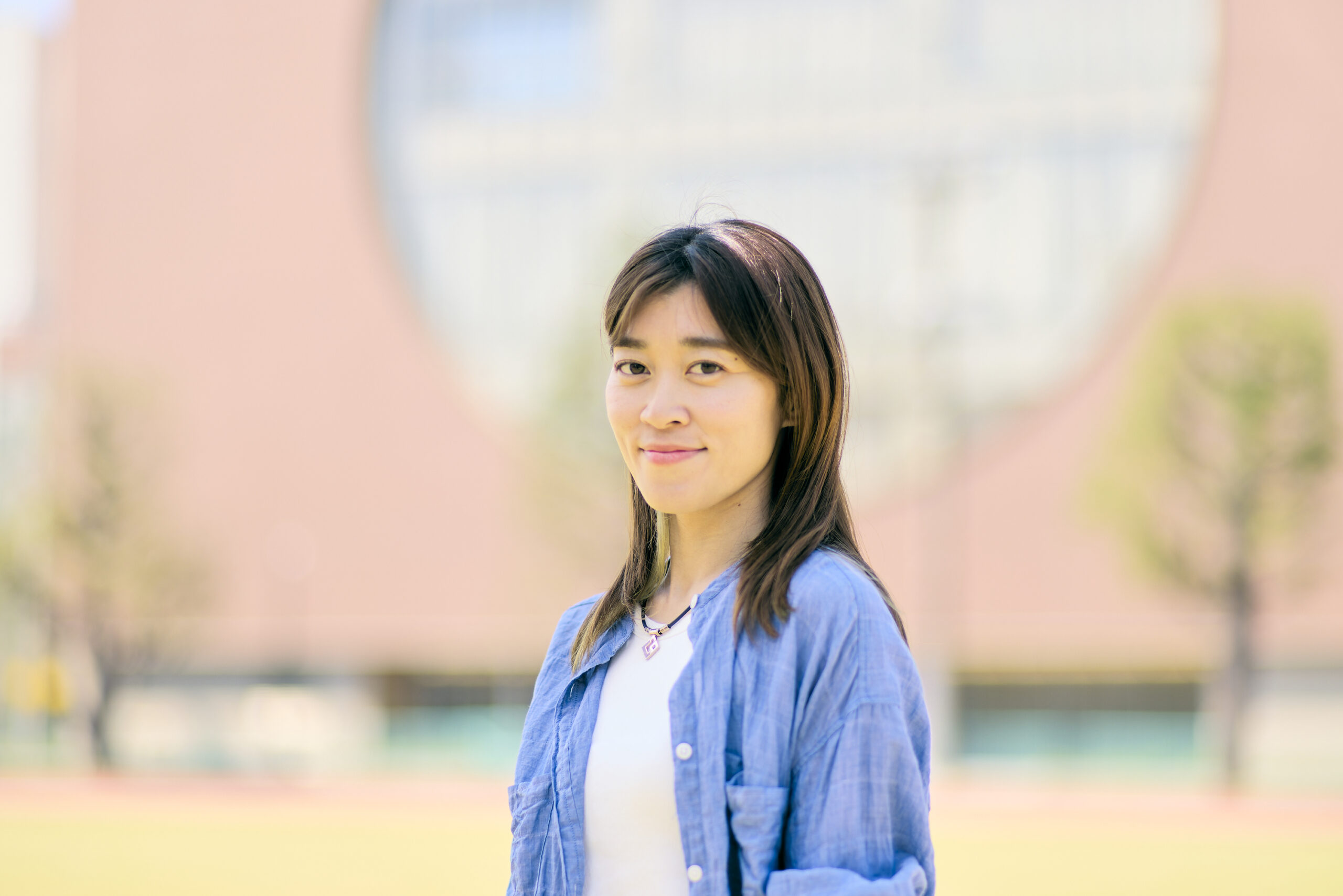
X:@sea0812mio
Instagram:sea0812mio
text by Rieko Kimura
photographs by Uta Mukuo
